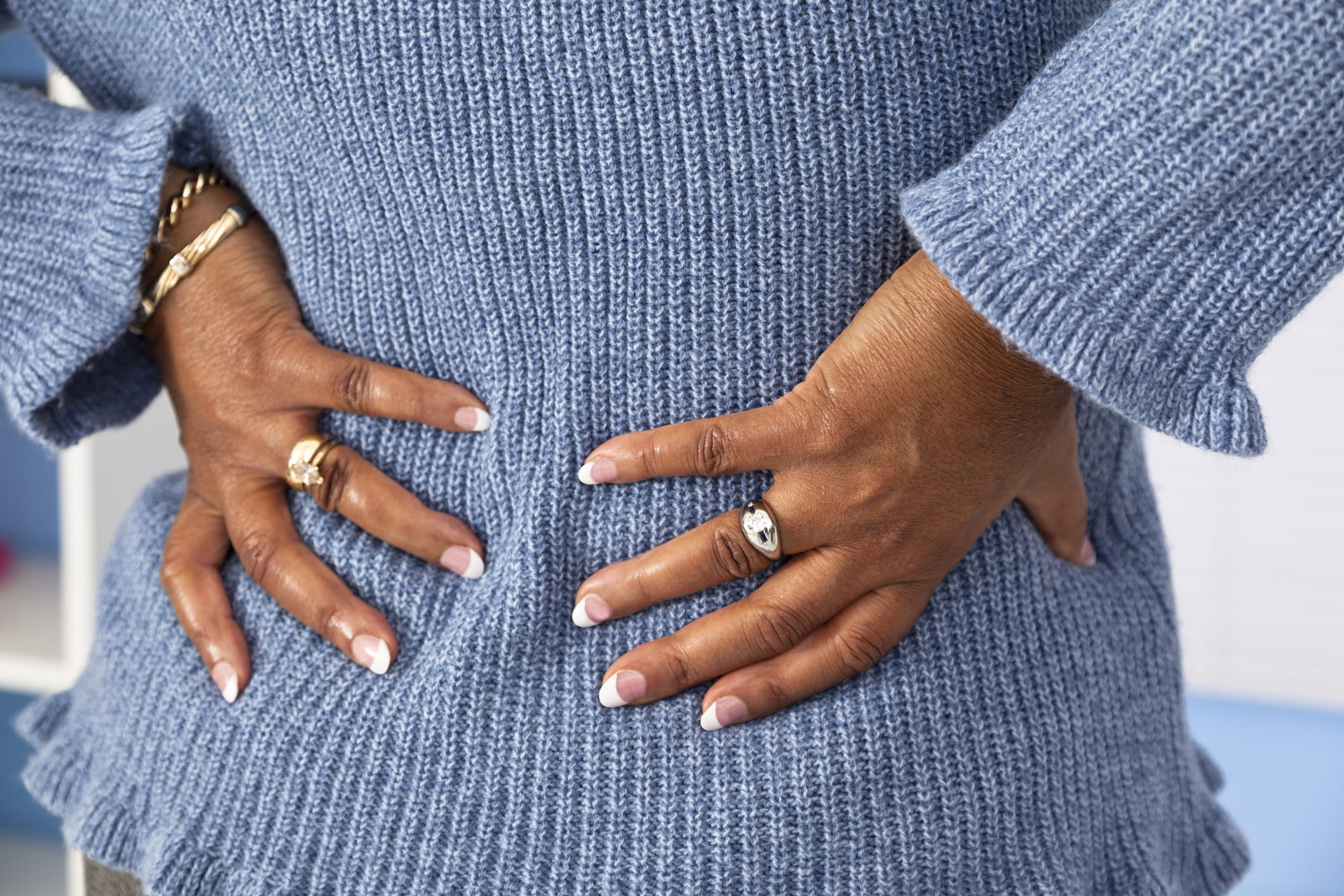Four signs you might have uterine fibroids

Uterine fibroids are a common health condition that affects millions of women. But, despite their prevalence, many women may not realize they have uterine fibroids. Although 75% of women will likely be affected by uterine fibroids during their lifetime, only about 20% of those affected will experience fibroid symptoms.
Understanding uterine fibroid pain and bleeding
A hallmark symptom of uterine fibroids is pelvic pain, a discomfort that can spread across various areas, including the lower back, pelvis and abdomen. The intensity and nature of this pain are closely linked to the fibroid's size.
"Large fibroids (those measuring roughly 5 centimeters or more) can exert significant pressure on the surrounding organs, leading to a range of issues," says Katherine Chaves, MD, a surgical gynecologist with Main Line Health's Advanced Gynecology Program. "The experience of pain due to uterine fibroids can vary widely among individuals — it may present as a persistent, dull ache or escalate to sharp, stabbing sensations."
Fibroids typically grow in four locations:
- Inside the uterine cavity
- Inside the uterine muscle
- Hanging off the outside of the uterus
- Separate from the uterus (e.g., in the ovaries or fallopian tubes)
They can grow in one, some or all of these areas, causing pain during certain activities due to their location and size.
Fibroids can also lead to significant issues with uterine bleeding. They can cause changes in menstrual patterns such as heavy bleeding, extended periods, spotting between cycles or irregular cycles.
Feeling pain from uterine fibroids or dealing with heavy bleeding can make it hard to exercise or complete everyday activities. These symptoms can feel different for each woman, so it's important to listen to your body and notice how it reacts.
Bloating and pressure in the lower abdomen
Bloating and pressure in the lower abdomen could be signs of uterine fibroids. When these growths in or on the uterus get bigger, they can push outward and cause discomfort. This can make the abdomen look larger and give a constant feeling of being full.
Bloating caused by fibroids is different from normal bloating due to diet or hormones because it is persistent, doesn't go away with changes in diet or menstrual cycle.
"Many individuals report this bloating not just as intermittent discomfort but as a constant, pressing feeling that mimics the sensation of being overly full," says Dr. Chaves.
This discomfort can also manifest as a pressure within the pelvic region. That pressure might not only contribute to bloating but it can also interfere with nearby organs. For example, larger fibroids might press against the bladder, leading to frequent urination, or against the bowel, contributing to constipation or discomfort during bowel movements.
Impact on daily activities and fertility
Uterine fibroids not only cause physical discomfort but may also impact daily life emotionally and psychologically. Simple tasks may become challenging, leading to a reluctance to engage in social activities or hobbies, resulting in feelings of isolation.
While most women with fibroids will not be infertile, it may be harder to conceive depending on the size, number and location of fibroids. If you experience difficulty conceiving, consult a doctor or fertility specialist for assessment and treatment options. There are now various non-surgical treatments available, providing more choices for women with fibroids.
Dealing with ongoing symptoms can be emotionally draining, leading to feelings of frustration, sadness and helplessness. The search for treatment can be long and complicated, impacting relationships and self-esteem. But noticing changes in your body and discussing them with your doctor is important in detecting uterine fibroids early. There are numerous treatment options available including medication and minimally invasive surgical techniques. Taking a proactive approach can lead to better treatment options and improve overall quality of life.
Next steps:
Make an appointment with Katherine Chaves, MD
Learn more about advanced gynecology care at Main Line Health
What you need to know about pelvic floor issues and how to treat them
 Content you want, delivered to your inbox
Content you want, delivered to your inbox
Want to get the latest health and wellness articles delivered right to your inbox?
Subscribe to the Well Ahead Newsletter.
